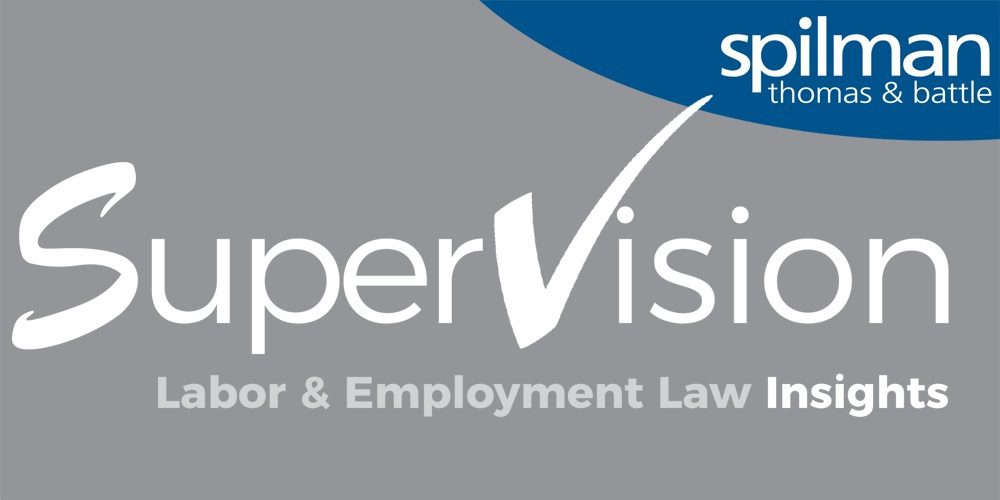Article
Resources
Article
The Parameters for Allowing Political Conversations at Work

Conversations and “water cooler talk” among colleagues have long been integral to workplace culture. In modern times, the “water cooler” has expanded beyond the physical workplace to include online work platforms (Slack, Teams, etc.) and social media (Instagram, Facebook, etc.). When we talk about the parameters for acceptable political conversation in (or impacting) the workplace, employers need to recognize that the scope – and mediums – for having these conversations have greatly expanded beyond the physical office water cooler.
While employees frequently discuss a wide range of topics with one another, politics tends to be more divisive than the others, particularly in the current political climate. With this year being an election year, political conversations in workplaces are likely to increase. At the time of writing, the election is nearly one month away, which means politics will be at the forefront of many people’s minds. This raises an important question: should political conversations have a place in the workplace, and if so, how can they be managed to maintain a positive and inclusive workplace culture?
Political conversations are at the top of the list when it comes to topics most likely to cause disagreements. While politics is a topic rife with disagreement, it may be unwise to attempt to ban the topic outright in the workplace. A recent survey found that almost half of U.S. workers have engaged in a political conversation within the past month, which suggests efforts to ban such conversations would be ineffective. Moreover, banning a topic of conversation may negatively impact workplace morale. Effectively banning such conversations is challenging. Any topic of conversation can become political, so where is the “political” line?
Instead of banning a given topic, employers may set parameters and rules for how those conversations can occur in the workplace. Disagreements can occur for many reasons. Colleagues may root for different sports teams or disagree on whether or not the new blockbuster movie was good or not. Thus, whether the topic of conversation is politics or any other topic, employers must take steps to foster an environment that encourages respectful and inclusive conversations. Recognizing that coworkers have different views and opinions and that this is normal is the first step in creating a healthy environment for open conversations.
Allowing such conversations to occur respectfully can have many benefits. Not everyone will approach a workplace problem in the same manner. When employees with differing views are able to view one another’s perspective without passing judgment, it can allow for more effective problem-solving. Moreover, when all employees are able to express their views, it ensures all employees know their opinions will be included. In a workplace that makes a point about respecting and including all beliefs, employees will trust each other and engage with each other more. More ideas will be brought to the forefront of the organization when all are included, and everyone will understand that differences can be resolved in a respectful and effective manner.
It is equally important, however, that these conversations are not without their limits. Employees must understand what is not tolerated by the employer. For example, the content of political (or other) conversations must be appropriate and conducted in a way that is suitable for the workplace. Employers should prohibit employees from:
Organizations should reflect their guidelines clearly and in writing, and they should ensure that the rules are communicated to and fully understood by all employees. Moreover, employees must understand that failure to comply with employer guidelines can lead to disciplinary action.
Employers also need to know how to respond if a complaint is ever made about such conversations. Employers have an obligation to prevent harassment, discrimination, and retaliation under state and federal laws. This legal obligation includes the duty to investigate claims of harassment, discrimination, and retaliation, and to take steps to address them promptly and adequately when they occur. Failure to do so can create legal liability for the employer.
In many respects, the old adage, “It’s not what you say, it’s how you say it” applies here. Employers should focus on ensuring that employees engage with one another in a manner that contributes to a workplace culture of respect and inclusion rather than policing the topics of conversation. By acknowledging differences, establishing boundaries, and fostering a culture of respect, organizations can facilitate political conversations in the workplace. With the help of these proactive steps and compliance by employees, political conversations will not be a detriment to the workplace in both a cultural and legal sense.
Spilman understands that navigating political issues in the workplace can be tricky, particularly in today’s divisive political environment. Our team of labor and employment attorneys remain ready, willing, and able to assist you in addressing these issues.


